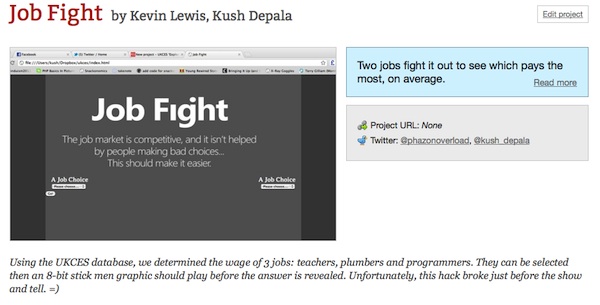LMI for All
Over the last year we have been working on a series of ideas for using open data in careers guidance. We call these applications under the generic name of Technology Enhanced Boundary Objects.
In the last six weeks we have been working with the Institute for Employment Research, University of Warwick and Cambridge Econometrics on a project for the UK Commission for Employment and Skills on a database, code named ‘LMI for All’.
The Stakeholder Briefing explains:
LMI matters: accessible and intelligible labour market information (LMI) is vital for the effective functioning of the UK labour market. Young people entering the labour market for the first time, and people of all ages re-entering it or seeking to move between jobs, need up-to-date information on the opportunities available. But too often this information is located in a number of places and highly technical, reducing its value to non-experts.
The government has emphasised the importance of careers information to its plans for growth. The National Careers Service’s new web portal, which will launch in April 2012, will provide up–to-date information on occupations, progression routes, wages and employment trends. But over the longer term more can be done to provide nuanced information, more closely connected to the original data sources.
One way in which this could be achieved, which this project will explore, is through the creation of a comprehensive database that pools information from key LMI sources into one place. This database would be accessible to web developers who could develop targeted interfaces: connecting the right information to the right audiences…….
The database will be developed in line with the UK Government’s open data principles3 and will be accessible to web developers from the private or non-profit sectors to use to develop targeted interfaces that provide the information that their target audience requires, in the way that best meets their needs. This will ensure that the data can be used flexibly and creatively to meet real demand for LMI.
The prototype database draws on a number of different data sources including the quarterly Labour Force Survey, O*NET data and Job Centre vacancies. We have developed an API to provide access to the data and last Tuesday UKCES organised a hack-day where, in a one day workshop, developers from Rewired State took part in a competition to develop applications based on the database. The Rewired State blog provides screen shots and brief details of the different apps developed.
The results of the project will be fed through to the English government with recommendations as to how this work might be further developed.

